Ruling Chinese Communist Party leader Xi Jinping has lauded his reformist predecessor Deng Xiaoping, nodding to his ordering of the 1989 Tiananmen massacre and vowing to continue his reforms, although political commentators said Xi's praise was largely for show.
China's state media marked the 120th anniversary of Deng's birth on Aug. 22 with a welter of complimentary prose, and Xi hailed Deng as "an outstanding leader with high prestige recognized by the whole party, the whole army and the people of all ethnic groups in the country.”
Xi also called Deng "a great Marxist" and "a great internationalist who made great contributions to world peace and development."
"Comrade Deng Xiaoping firmly defended the glorious banner of socialism," Xi said in a copy of his speech published by state news agency Xinhua. "Against the backdrop of the disintegration of the Soviet Union and the dramatic changes in Eastern Europe, a serious political turmoil occurred in this country between spring and summer in 1989."
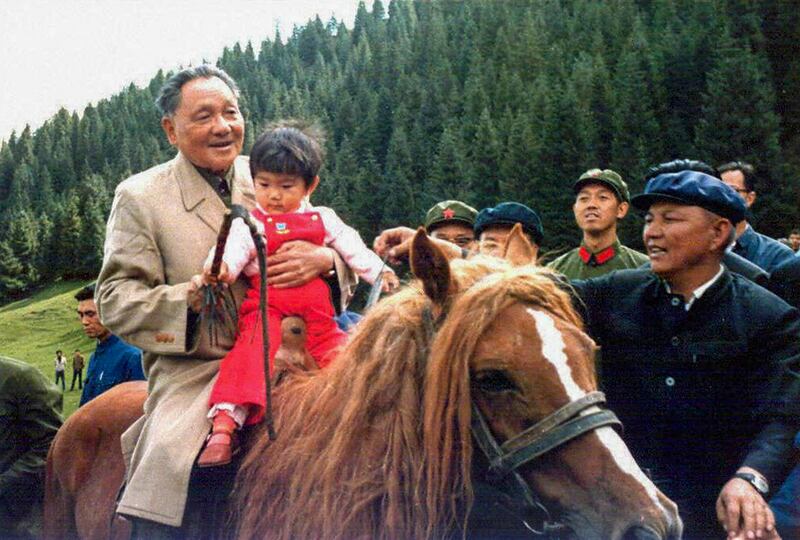
"At the critical juncture, Comrade Deng Xiaoping led the party and the people to stand firmly against turmoil and resolutely defend the power of the socialist state," Xi said, in a reference to the 1989 military crackdown on the weeks-long pro-democracy movement on Tiananmen Square, in which hundreds, possibly thousands, died.
While Xi also called for the continued "creative use and application" of Deng's ideas, which kick-started four decades of breakneck economic growth and turned China into the "workshop of the world," analysts said this was unlikely to be implemented on the ground as Xi steers China towards a socialist-style planned economy that is less dependent on the rest of the world.
Many commentators also took issue with the popular characterization of Deng as a liberal-minded reformer, saying he paved the way for far more authoritarian rule under Xi.
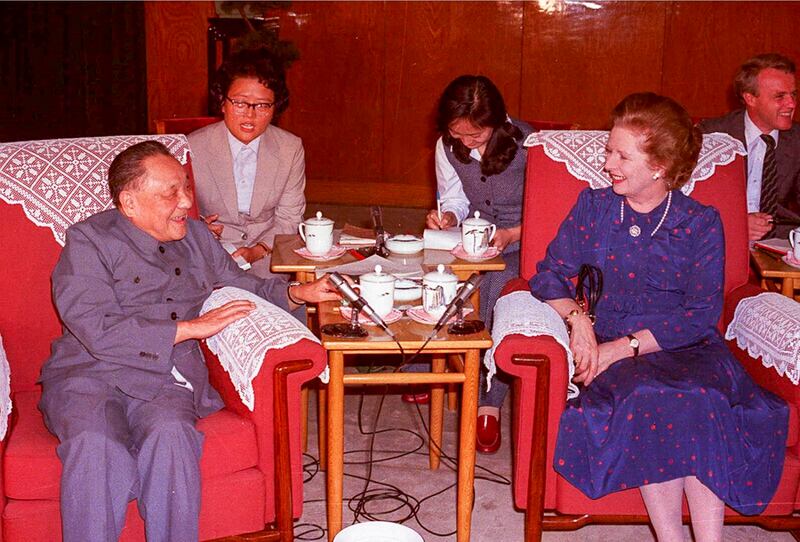
"First of all, Deng Xiaoping wasn't China's Gorbachev," U.S.-based former Party School professor Cai Xia told RFA Mandarin in a recent interview, in a reference to the former leader of the Soviet Union whose reforms paved the way for the collapse of communism in Russia and across Eastern Europe.
"His suppression [of the Tiananmen protests] proved that,” Cai said. “Gorbachev preferred to let his country move forward than to put the interests of a [political] party first."
‘Deep down, he doesn’t agree’
Comments on an RFA Mandarin X post seeking opinions on Deng's anniversary appeared to agree.
"Deng Xiaoping and Emperor Xi are of the same lineage," said one comment, while another added: "All Deng wanted was to save the Chinese Communist Party."
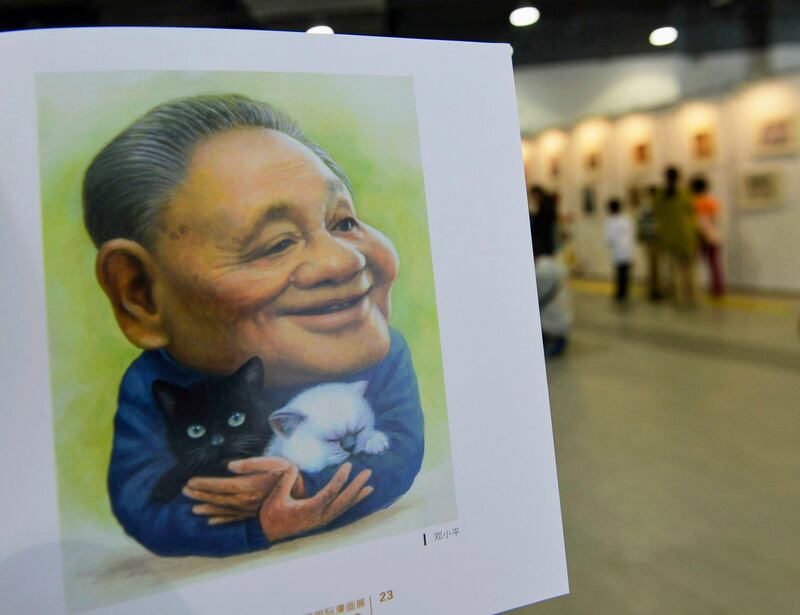
Another said: "Everything we have in the party-state today is the inevitable result of Deng's designs."
Current affairs commentator Cai Shenkun said Xi appeared to be putting on a show of ideological strength by praising Deng amid the current economic downturn, which has left many ordinary people struggling.
"There could be think tanks telling him to solemnly commemorate Deng Xiaoping in a high-profile manner to appease the voices of his opponents," Cai said, citing "serious issues of instability in party and military ranks," as well as popular dissatisfaction.
"But deep down, he doesn't agree with Deng Xiaoping's ideas, and he has been gradually abandoning Deng's reforms and opening up policies," he said.
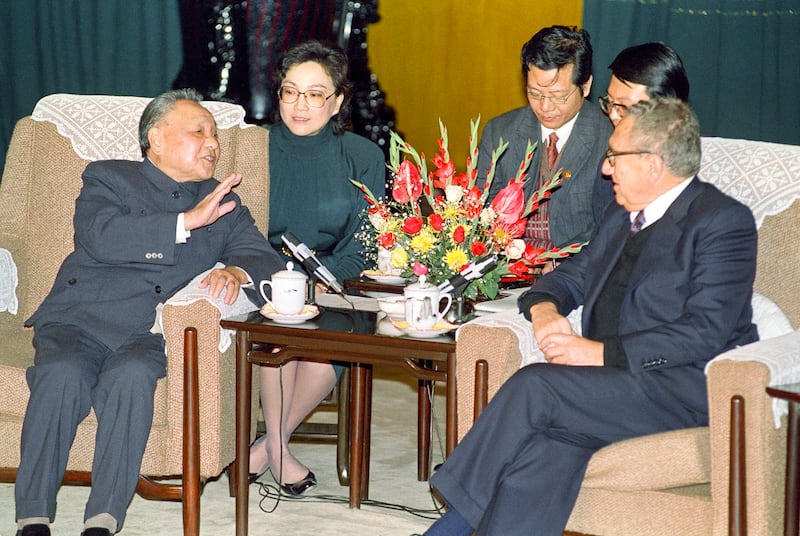
Big disconnect
State media and institutions have nevertheless been pushing the boat out for Deng, with a new set of commemorative stamps, an 8,000-character piece in praise of Deng in the ideological journal Qiushi and videos and quotations from the former leader across websites and social media platforms.
Independent writer Ye Fu said there is a big disconnect with what the party under Xi does and says, when it comes to Deng Xiaoping's economic strategy.
"It's hard to say whether they will return to reform and opening up [to the international community] at a later time," Ye said, suggesting that Xi will continue along the lines of Marxist economics, and only pay lip-service to the market economy and international trade.
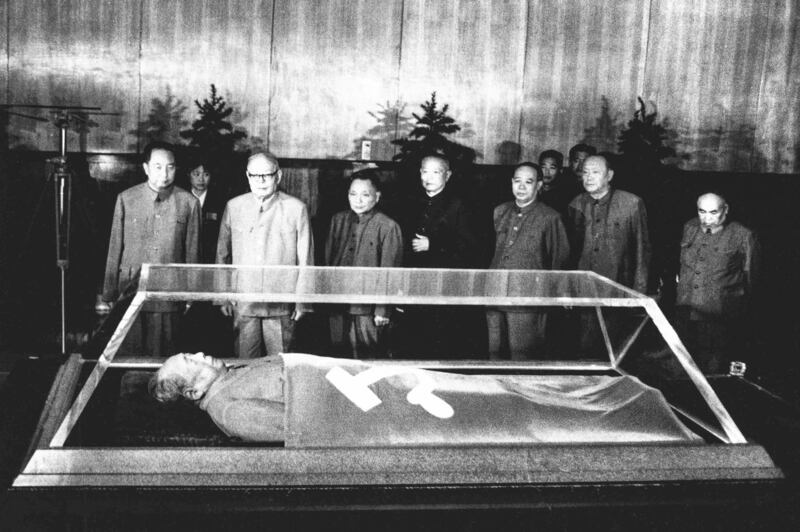
"It's likely that what they're doing is signaling right and turning left, as the saying goes," Ye said.
Cai Shenkun said Xi’s idea of reform is to “take back all of the power that the party has relaxed or loosened in the past, giving the party firm control over all fields and industries, as well as all socioeconomic groups.”
Too much credit
Meanwhile, independent political journalist Gao Yu said Deng has been given too much credit for his economic prowess, when other Chinese leaders including late disgraced premiers Hua Guofeng, Hu Yaobang and Zhao Ziyang actually did far more to open up the market economy in the 1980s.
"They're the ones who changed China's course, which was reflected in the political and ideological, in the diplomatic line and in economic policy," she said.
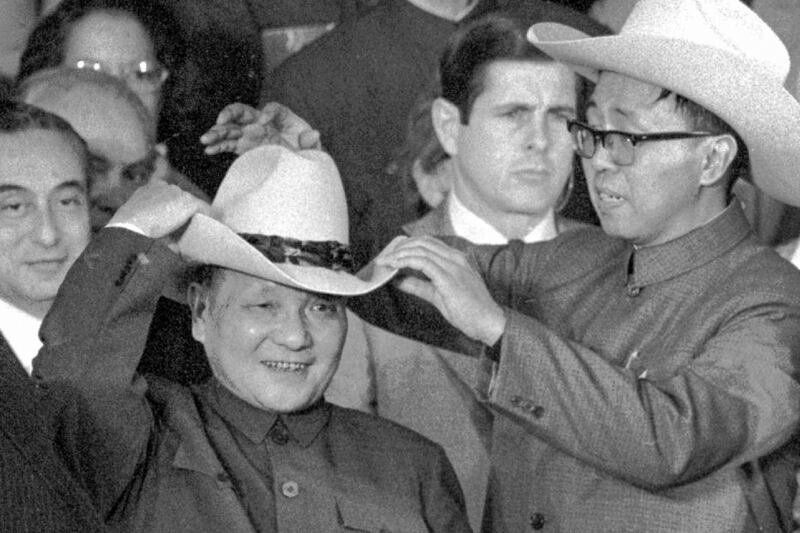
Gao said Deng had also signaled the end of a period of relative freedom in China when he ordered the People's Liberation Army to fire on unarmed civilians in Beijing in 1989, blaming him for "leading China down the path of crony capitalism" instead, in the years that followed.
According to Gao, Deng also paved the way for indefinite rule by Xi Jinping when he insisted that other leaders step down after two terms, but then remained in the driving seat behind the scenes for years after relinquishing most of his official posts.
Cai Xia said Deng was a symbol both of success and failure, crediting him with having ended the political turmoil of the 1966-1976 Cultural Revolution, but blaming him for failing to take his reforms one step further and allow a more democratic political system in China.
She said the party's history of "unforgivable crimes" and "major mistakes" had likely been what stopped him.
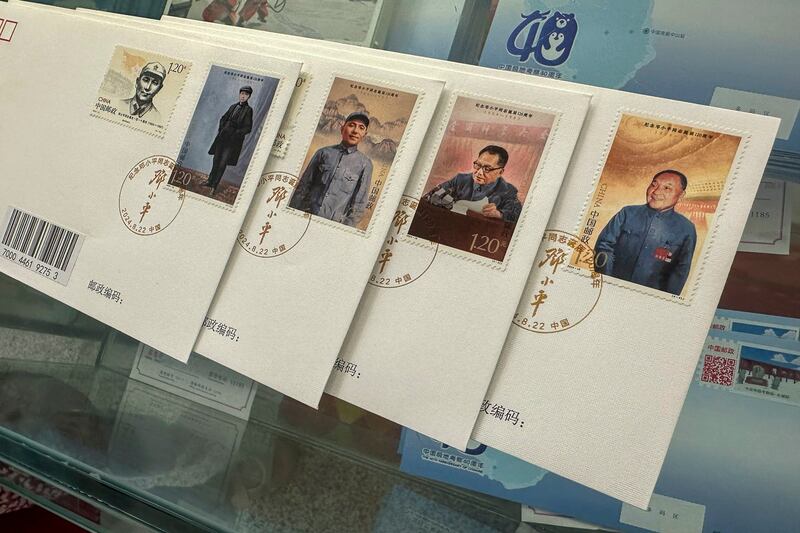
"If they'd given the people the right to choose, the Chinese Communist Party might have lost power," Cai Xia said. "And that's precisely why I think Deng put reform of the political system to one side, and gradually stopped talking about it."
She said the Tiananmen protests and massacre were a turning point in contemporary Chinese history.
"All of the problems we see today, from the collapse of the economy to the widening gap between rich and poor, to large-scale unemployment, the re-suppression of thought and speech and the harsh crackdown on political dissidents ... can actually be traced back to Deng Xiaoping's Tiananmen massacre on June 4, 1989," she said.
Translated by Luisetta Mudie. Edited by Malcolm Foster.
